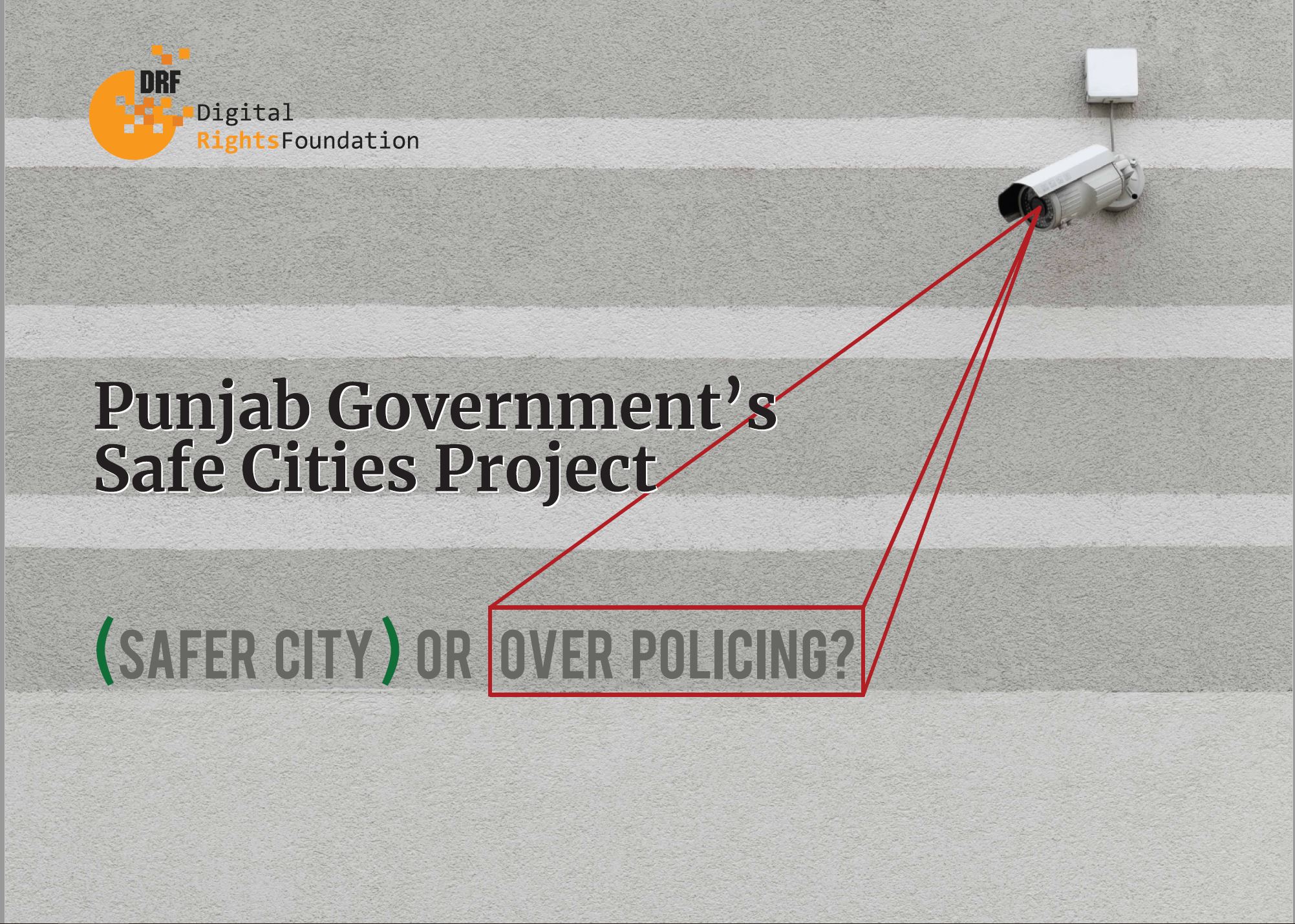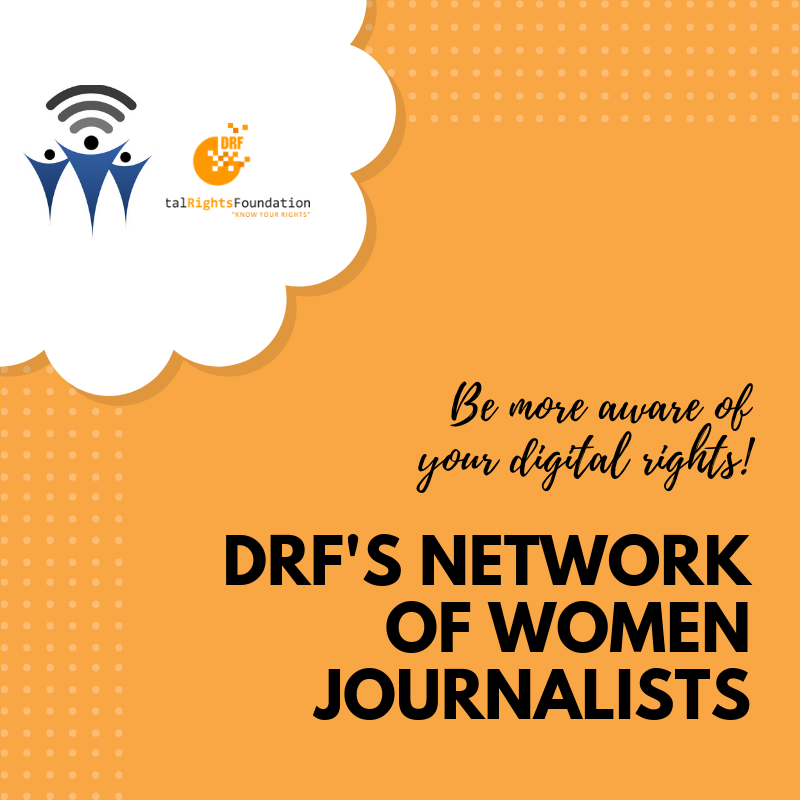September 12, 2018 - Comments Off on August 2018 – A study on the Punjab Safe Cities Authority (PSCA)
August 2018 – A study on the Punjab Safe Cities Authority (PSCA)

SafeCitiesCovering
Digital Rights Foundation’s research titled “Punjab Government’s Safe Cities Project: Safer City or Over Policing?” was launched which looked at the privacy rights implications of the Punjab Safe Cities Authorities and digital urban policing in general.
The study can be found here.
Guidebook on Ethical Journalism on Digital Platforms

Digital Rights Foundation published a “Guidebook on Ethical Journalism on Digital Platforms”. New digital forms of media are more interactive, immediate and always on, and the media landscape is evolving at a furious pace. This has led to professional journalists sharing the same online space with tweeters, bloggers and social media users.
The Guidebook looks at the question of whether the existing media ethics are suitable for this evolving digital media landscape or new and different standards are needed. It discusses how the growing use of digital platforms for the creation and dissemination of news and information and spread of hoaxes, rumors and disinformation through this medium has led to demands for consistent ethical standards for online spaces. The Guidebook can be found here.
DRF organized a workshop on ‘Ethical Journalism & Digital Rights for Journalists’
On August 1, 2018, DRF organized a workshop for journalists on ethical journalism and digital rights in Lahore. The aim of the workshop was to discuss whether the existing media ethics are suitable for the evolving digital media landscape or new and different standards are needed. The session also aimed to highlight what are digital rights and to create awareness about the legal landscape that governs digital platforms for freedom of media and journalists.
Around 33 journalists from print and media joined the session and actively participated in the workshop. They gave great recommendations on how to tackle fake news and disinformation online, considering how most of the population in Pakistan lacks digital literacy and is vulnerable to all kinds of online and digital propaganda.
The workshop was concluded by a digital training by DRF’s digital security trainers on how journalists can make online spaces safe for themselves by adopting various tools and resources available to them. The participants were eager to join such sessions in the future as they had very little knowledge about digital rights and the ways journalists can protect themselves online.

Consultation at Punjab Commission on the Status of Women

Digital Rights Foundation took part in PCSW’s consultation between civil society and law enforcement agencies held on August 2, 2018. Our members raised their concerns regarding online harassment and the gaps in government service delivery to address the issue.
Recommendations for the Personal Data Protection Bill, 2018
DRF, along with Privacy International, submitted its recommendations and suggestions for the Personal Data Protection Bill, 2018. The recommendations highlight the need for data privacy with reference to government institutions and sensitive data.
Our recommendations can be found here.
Nighat Dad as a Guest Speaker at Training organized by UNCRC
Nighat Dad spoke as a guest speaker at a workshop on August 17, representing Digital Rights Foundation, organized by the United Nations Convention on the Rights of the Child to talk about digital rights and security. She pointed out the intersection between child’s rights advocacy and digital rights.
Participation in APrIGF panel on “Internet Platforms and Online Abuse and Violence against Women”
Shmyla Khan from DRF virtually participated in the Asia Pacific Regional Internet Governance Forum (APrIGF) panel titled “Internet Platforms and Online Abuse and Violence against Women”. She highlighted issues of content moderation with reference to online harassment laws and experiences of Pakistani women.
Nighat Dad spoke about digital rights live on Subah Say Agay on Hum News
On 21st August, DRF’s Executive Director, Ms. Dad spoke live about digital rights on Amber Rahim Shamsi’s show on Hum News. She talked about the importance of social media platforms and how they ensure fundamental rights and access to information. She also added that banning social media platforms in this digital age would not be a very wise move as mass censorship goes against democratic values.
For the complete interview click here.
Nighat Dad as a panelist at the launch of the ‘TRANSition’ project
CSC Empowerment & Inclusion Programme along with its partners - The Gender Guardian and Go Green Welfare Society, launched their ‘TRANSition’ project on 17th August. Nighat Dad was part of a panel discussion on ‘Policy level changes for acceptance of Transgenders’, to create awareness on the vulnerability of transgenders in our society and to highlight the efforts made on an institutional level. The keys of motorbikes were also distributed by the panelists to ten of the transgenders, to make mobility easier for them. Click here for more details.

State v Sarmad Liaqat
In continuing its project of ‘Mapping PECA’, a new designated section that has been created to overview the judicial development of the Act, DRF’s legal team has prepared another report on a recent judgement that has come from the court of Special Magistrate Aamir Raza Baitu and which looks into convictions under s.20(1), 21 and 24 of the Prevention of Electronic Crimes Act 2016. It is available for your perusal here.
Network of women journalists continue to share articles and blogs

Members of DRF's Network of Women Journalists for Digital Rights continued to share articles and blogs on digital rights issues which can be found on the Hamara Internet website here. This is part of DRF's initiative to record women journalists' voices, particularly relating to digital rights and security issues.
In August was the month preceding the General Elections of Pakistan, Network members wrote extensively on the issues related to cyber bullying of journalists, social media and middle class elitism, and censorship policies.


